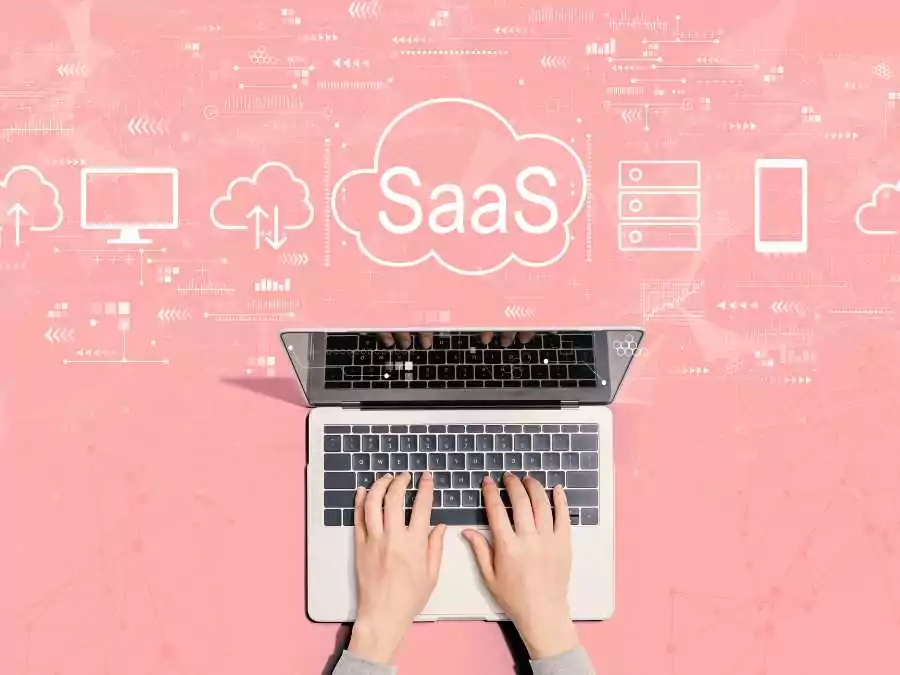The SaaS (Software as a Service) market has experienced exponential growth in recent years and is expected to rise to grow in the coming years. Here are some key market insights and trends:
- Market size: The global SaaS market size is projected to reach $220.21 billion by 2022, growing at a CAGR of 13.1% from 2017 to 2022.
- Market segmentation: The SaaS market can be segmented into various categories, such as customer relationship management (CRM), enterprise resource planning (ERP), human capital management (HCM), collaboration and communication, and many others.
- Adoption rate: SaaS adoption has increased significantly as more organizations have started to realize the benefits of using cloud-based software. According to a report by Gartner, by 2025, 85% of all software spending will be on SaaS.
- Competitive landscape: The SaaS market is highly competitive, with many established players and newcomers vying for market share. Some of the leading SaaS providers include Microsoft, Salesforce, Adobe, Oracle, SAP, and Google.
- Growth drivers: The growth of the SaaS market is being driven by factors such as the increasing adoption of cloud-based solutions, the need for scalable and flexible software, the rising demand for mobile-first applications, and the emergence of new technologies like artificial intelligence and machine learning.

Stages that are involved in SaaS products
Before going towards SaaS development cost, take a look at the stages involved in this whole process. This will give you a better understanding of the SaaS expenses involved.
Market research and planning
This stage involves researching and analyzing the market to identify customer needs, competition, and trends. Based on this information, a plan is created that outlines the product's features, target market, pricing strategy, and marketing approach.
Creating MVP
A Minimum Viable Product (MVP) is a version of the product with the minimum set of features required to test the product's viability and gather customer feedback. This stage involves developing a functional version of the product that can be tested by a select group of customers.
Complete development stage
Once the MVP is validated, the complete development stage involves adding more features and refining the product to create a more robust and polished version. This stage also involves conducting testing and quality assurance to ensure that the product functions correctly and is free of bugs.
Deployment and troubleshooting
After completing development, the product is deployed to the market. This stage involves setting up the infrastructure for hosting the product, configuring user accounts and permissions, and providing customer support. It also involves troubleshooting any issues that arise during the deployment process and fixing any bugs or errors that customers may encounter.
Overview of estimated SaaS product development costs
The cost of developing a SaaS product can vary depending on parameters such as the size and complexity of the product, the development team's experience, and the location of the team. Some of the main cost factors involved in SaaS product development include hiring developers, project management, infrastructure monitoring costs, and marketing expenses.
The costs of building a SaaS product and how to reduce them
Thus, how much does it cost to build a SaaS platform? Below, you can find out which items should be necessarily included when planning the budget and whether it is possible to reduce their cost of them somehow.
Development team costs
One of the most significant factors in the cost of SaaS development is the development team itself. Hiring a team of experienced developers can be expensive. You can reduce the cost of building a SaaS marketplace by hiring developers from a less expensive region or country. Outsourcing to countries like India, the Philippines, or Eastern Europe can be more cost-effective than hiring developers in the United States or Western Europe.
Technology stack costs
The technology stack used to build the product can also affect development costs. Choosing a technology stack with open-source tools and frameworks can reduce licensing fees and other costs associated with proprietary software. It's also essential to choose a technology stack that is flexible and scalable, which can save costs in the long run.
Agile development costs
The cost of SaaS software development also includes agile development. Using an Agile development methodology can help reduce development costs by allowing for more flexible and iterative development. The agile methodology emphasizes collaboration, continuous improvement, and early delivery of working software. This can help to reduce the cost of rework and ensure that the product is developed in a more efficient and cost-effective way.
Infrastructure and hosting cost
Infrastructure and hosting also come with the cost of building a SaaS product. These costs can also be significant. Choosing a cloud-based infrastructure can be more cost-effective than building and maintaining an on-premises infrastructure. It's also important to choose a hosting provider that is reliable and offers cost-effective pricing.
Wrapping up
Reducing SaaS development costs can be achieved by planning thoroughly, adopting an agile development methodology, utilizing open-source software, outsourcing non-core functions, leveraging cloud computing, and choosing the right development team. By focusing on essential features, testing and addressing issues early, using pre-built modules, outsourcing non-core functions, and utilizing cloud computing services, development costs can be significantly reduced.
Hiring an experienced SaaS platform development team that has a deep understanding of your target market can also help you to avoid costly mistakes and ensure the quality of your product.

